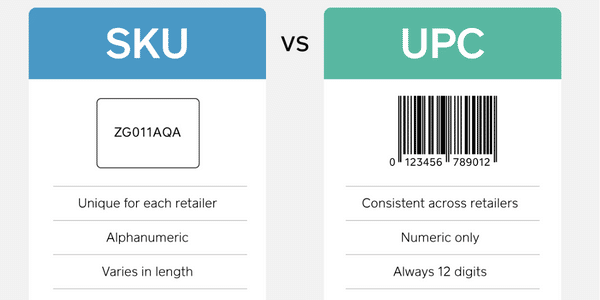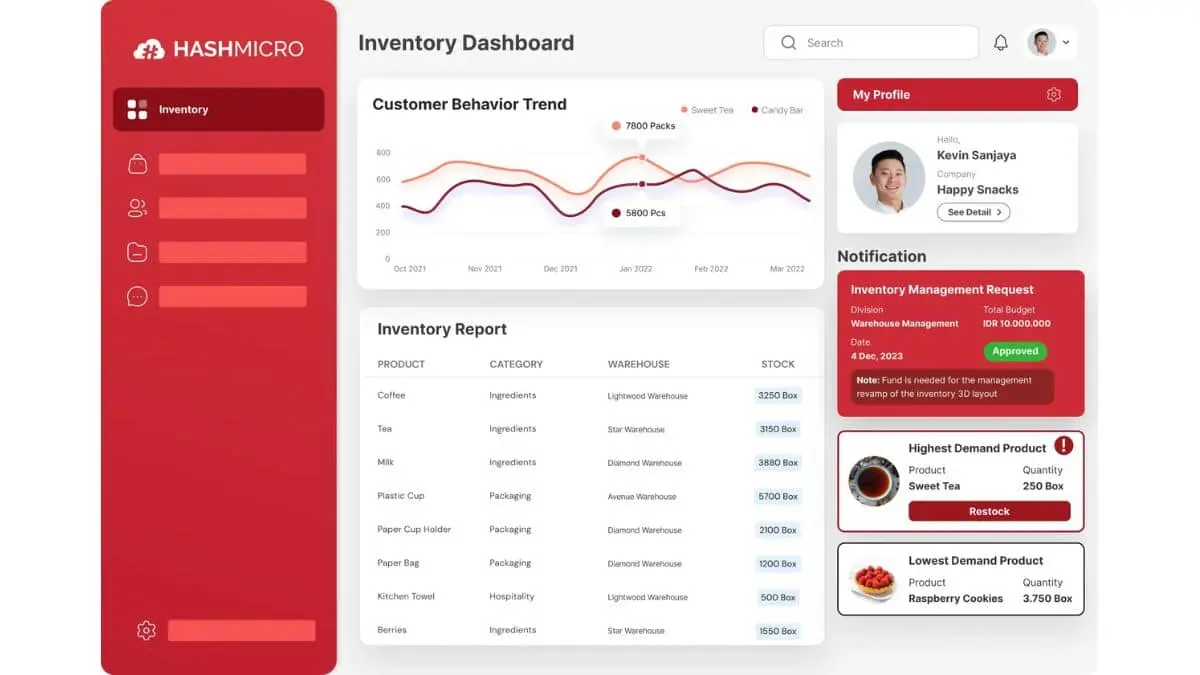Running a business is tough enough without losing track of your products like socks in a dryer. For businesses in the Philippines, staying organized in a fast-paced market is crucial. The Stock Keeping Unit (SKU) is a simple yet powerful tool that helps businesses manage inventory chaos with ease. Think of SKUs as your business’s personal assistant, organizing every product so you don’t have to.
These smart codes do more than just identify items—they streamline inventory tracking, improve organization, and boost sales efficiency. With a robust SKU system, you gain more control, fewer headaches, and better insight into your business’s performance. Whether you’re managing thousands of items or just a handful, the benefits of a well-structured SKU strategy directly translate into smoother operations and higher profitability, giving Filipino businesses the competitive edge they need.
Key Takeaways
|
Table of Contents

What is a Stock Keeping Unit (SKU)?
A Stock Keeping Unit (SKU) is a unique code used by businesses to identify and track each product in their inventory. Typically, SKUs are alphanumeric combinations that represent specific characteristics of a product, such as its brand, size, color, and category. For example, a retail store might assign the SKU “SHRT-BLU-M” to a blue medium-sized shirt.
The significance of SKUs lies in their ability to allow businesses to easily monitor stock levels, sales performance, and replenishment needs. Unlike other identifiers like UPCs, SKUs are unique to each business, allowing for customization that aligns with specific inventory management needs. To ensure that these codes are consistently applied across operations, many companies rely on inventory solutions that can automatically assign and track SKUs within an organized framework.
The Importance of SKU in Inventory Management
SKUs play a vital role in inventory management by enabling precise tracking and organization of products. By assigning unique SKUs to each item, businesses can categorize products based on attributes like type, size, and color, leading to better inventory organization.
This makes it easier to track items across warehouses, store shelves, or even different locations. Both large corporations and small businesses benefit from SKUs, as they simplify the processes of stock counting, order fulfillment, and restocking. Moreover, inventory management software often integrates seamlessly with SKU systems, offering real-time insights into stock levels in their benefits, and helping prevent issues like overstocking or stockouts.
How are SKUs Created?
Creating effective SKUs requires following guidelines that ensure consistency, clarity, and scalability. Businesses should focus on keeping SKU codes short—usually 8-12 characters—while making them descriptive enough to convey key product details. For example, a retailer might use “JKT-BLK-L” for a large black jacket. Consistency in format is crucial across all SKUs to avoid confusion as your inventory grows.
As product catalogs expand, managing SKUs manually can become overwhelming. Inventory management software offers an efficient solution by automating SKU generation. With predefined templates based on attributes like type, color, or size, businesses can quickly create consistent SKUs. The software also scales your SKU system as your catalog grows, ensuring accuracy while minimizing errors. Using these tools not only simplifies SKU creation but also keeps your inventory organized and easy to manage.
Where are SKUs Used?
SKUs are widely used across industries like retail, manufacturing, logistics, and e-commerce. In retail, SKUs help manage large inventories by making it easy for staff to locate items and track stock levels. In e-commerce, SKUs act as key identifiers in product listings, ensuring customers receive the correct products.
Here are some common places where SKUs are utilized:
- Inventory Management Systems: SKU numbers are stored in inventory management systems or point-of-sale (POS) systems, making it easier to track all products.
- Warehouse Shelving: SKUs are often labeled on warehouse shelves to help staff quickly locate products during picking and packing.
- Product Listings: On e-commerce platforms like Amazon and eBay, SKU numbers are included in product details to ensure customers receive the correct items from the BIR inventory list.
- Shipping Labels: Many businesses include SKU numbers on shipping labels for easy identification and tracking of products during delivery.
- Delivery Notes: SKUs are often listed on delivery notes to provide clear reference to the products being shipped, helping ensure accurate order fulfillment.
- Price Tags: Retailers often use SKU numbers on price tags, enabling staff to efficiently manage inventory and locate items in-store.
- Receipts: When a product is sold, the receipt typically lists the SKU number alongside the product description.
- Product Packaging: Manufacturers print SKU numbers on product packaging, usually on a label or directly on the packaging.
No matter the industry, integrating SKUs with an inventory management system can further enhance accuracy, simplify tracking, and streamline operations, especially for businesses with large product catalogs.
SKU vs. UPC: What’s the Difference?

While both SKUs and UPCs (Universal Product Codes) are used in inventory management, they have different roles. SKUs are unique codes created by each business to track and organize products within their operations. For example, a clothing store might use “TSHRT-BLU-M” as an SKU for a medium blue t-shirt. On the other hand, UPCs are standardized codes, like “012345678905,” that are used globally to identify products and remain consistent across all retailers.
The main difference lies in customization: SKUs are tailored to meet a business’s specific needs, while UPCs are universal and do not change, no matter where the product is sold. For instance, the same t-shirt might have the SKU “TSHRT-BLU-M” in one store but always carries the same UPC—no matter if it’s sold online or in different retail chains. Businesses usually rely on SKUs for internal tracking and use UPCs to sell products across various platforms. Many inventory management systems can handle both, making it easier to manage products and keep things organized across multiple sales channels.
How are SKUs Used in E-Commerce?
In e-commerce, SKUs are crucial for keeping online stores organized and ensuring accurate order fulfillment. SKUs categorize products, track inventory, and manage sales data across platforms. For example, when a customer places an order, the SKU helps locate the exact item in the warehouse, ensuring the correct product is shipped. On platforms like Amazon and Shopify, businesses assign SKUs to each listing to monitor stock and automate restocking when levels run low.
For those familiar with e-commerce, SKUs go beyond identification—they are key to optimizing backend processes. High-volume sellers use SKUs to organize product variants and minimize fulfillment errors. Inventory management software further enhances this by syncing SKUs across platforms, automating reorders, and providing real-time insights. Advanced e-commerce operations also leverage SKU data to track top sellers, forecast demand, and fine-tune marketing strategies, making SKUs central to efficient scaling and profitability.
Track SKUs with HashMicro’s Inventory Management Software
SKU tracking requires assigning unique codes to each product and integrating those codes into a robust inventory management system. HashMicro’s Inventory Management Software makes this process seamless for businesses in the Philippines by offering automated SKU generation, real-time stock monitoring, and advanced analytics. With HashMicro’s solution, businesses can not only reduce errors in stock counts but also automate reorder processes, ensuring they never run out of critical items.
Here are the key USPs of HashMicro’s Inventory Management Software:
- Automated SKU Generation: Easily create and manage consistent SKUs for your entire product catalog.
- Real-Time Stock Monitoring: Get instant updates on stock levels across multiple locations to prevent stockouts and overstocking.
- Comprehensive Inventory Analytics: Gain insights into inventory trends, optimize stock levels, and make data-driven valuation.
- Multi-Warehouse Management: Track and manage inventory across different warehouses with ease.
- Seamless Integration with ERP Modules: Sync inventory data with other business functions, like sales and procurement, for improved efficiency.
Designed specifically for the needs of Southeast Asian businesses, HashMicro’s software provides complete visibility over your inventory, helping businesses in the Philippines efficiently manage peak seasons and streamline warehouse operations. With these advanced tools, businesses can scale effectively while staying competitive in a fast-paced market.
Conclusion
In conclusion, SKUs are an essential tool for effective inventory management across various industries. By providing unique identifiers for each product, SKUs enhance organization, simplify tracking, and improve overall business efficiency. Whether you operate a small retail store or manage a large e-commerce platform, implementing a well-structured SKU system—especially when integrated with inventory management software—can significantly boost your operational effectiveness.
HashMicro’s Inventory Management Software is designed to streamline SKU management while offering advanced features like automated SKU generation, real-time stock monitoring, and comprehensive analytics. With tailored solutions for businesses in the Philippines and beyond, HashMicro empowers companies to optimize their inventory processes and maintain a competitive edge. Ready to experience the benefits firsthand? Try our free demo today and see how HashMicro’s Inventory Management Software can transform your business operations.
FAQ Around SKUs
-
How do I get a SKU for my product?
You can create a SKU by combining product details like type, color, size, or brand into an alphanumeric code. HashMicro’s Inventory Management Software automates SKU generation, ensuring consistency and simplifying the process for businesses.
-
Are SKU and barcode the same?
No, SKUs and barcodes serve different purposes. SKUs are unique codes created by businesses to categorize and track inventory internally, while barcodes are standardized codes that are scanned for pricing and sales information at checkout. Both can work together but have distinct functions.
-
How to choose SKU numbers?
Choose SKU numbers that are clear, consistent, and easy to understand. Incorporate key product attributes like type, size, and color. Avoid using overly long codes or special characters, and ensure that your SKU format is scalable as your inventory grows.

























